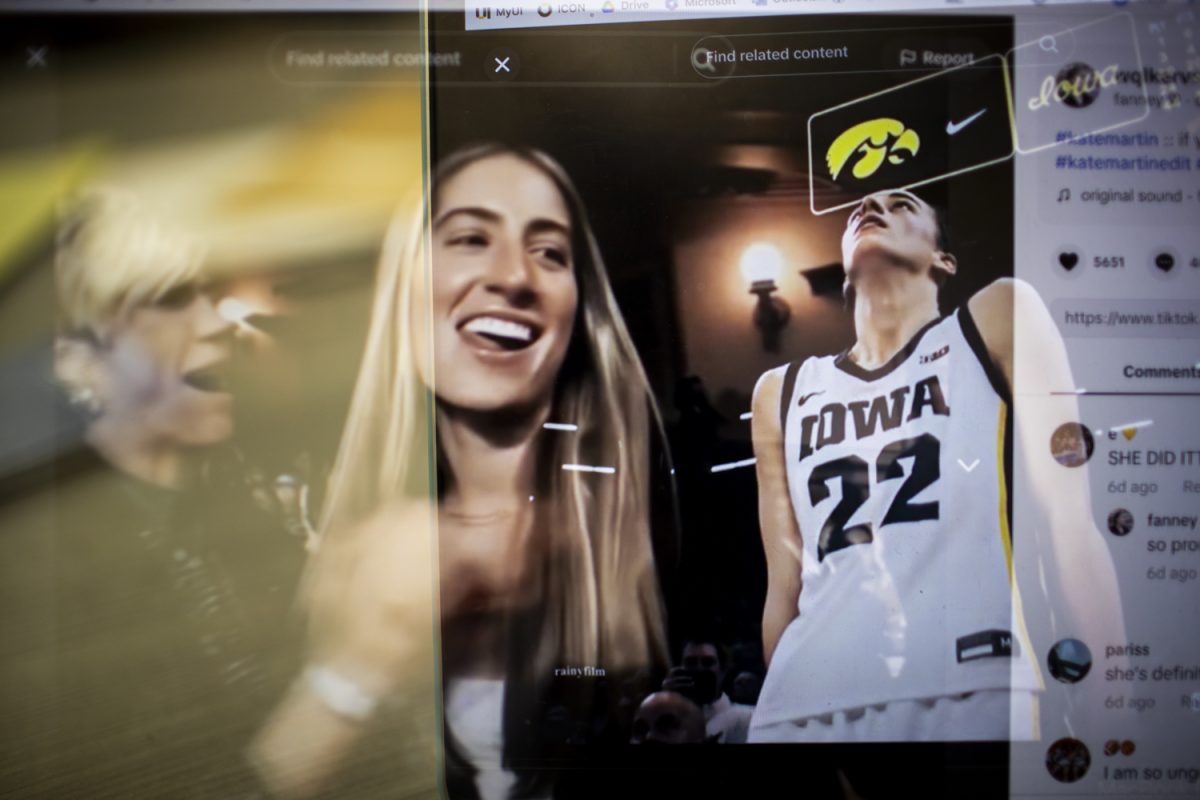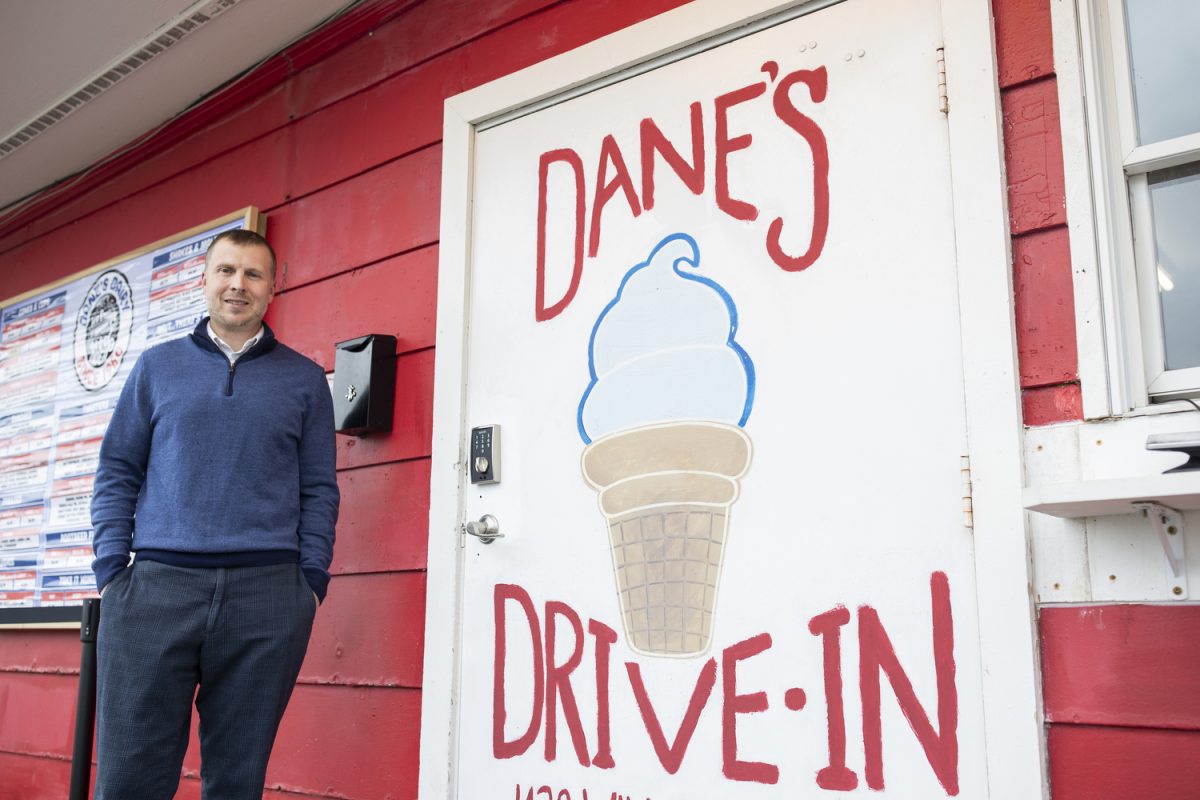The Daily Iowan: UI debt has almost doubled since 2005, does the increase concern you? How has the university counteracted the debt? Obviously the UI has a lot of expenses, but do you see any place where spending could be reduced to lower debt and expenditures?
UI President Sally Mason: Let me talk about debt and what it means to the university and what we do. It’s not so different then consumers and the way consumers think about debt. We don’t take on debt for anything operational. The only thing that we take on debt for is capital projects. In other words buildings or renovations big projects that sort of like the way people would take debt for mortgage on a home. Most people I know are very responsible in terms of using their credit cards, in terms of the debt they take on and usually the only debt they have on is the mortgage. In many ways that’s what the university has done. The debt we take on is really only associated with our large building projects. We have a number of building projects underway, we had a major flood in 2008, it’s not surprising that our debt has gone up because we have got many more building projects going on but at the same time we are also very responsible in terms of every capital project that we do, it’s not just debt. We fund raise, with the flood projects we obviously have a partner in FEMA that helps pay for the projects, and then we take on what is a responsible about of debt in order to complete the projects and make certain that they are quality, that we want for the university. The simple answer to your question is no I am not concerned abbot the debt we have taken. I think it is rationale, responsible. I use the dormitory we will build as a really good example. We will use some bond debt there to build the dormitory we will get a very low interest rate and we know that because students will be living there and paying the room and board fees, that we have a revenue stream that pays off the bond and debt long term. We have a very solid, high bond rating. I think that’s all positive for the university. While we are still recovering from the flood I think that’s hard. We have been very judicious in looking at other projects. We have not taken on more then one major project a year, while we have been in flood recovery mode and I think that’s likely to continue. We also have a lot of aging facilities. This year the dental science building was our priority and were very fortunate to get good help from the state and the dean there has raised a lot of money and we were able to do that project. Similarly this year we are looking at pharmaceuticals.
DI: Earlier this month the UI Sierra Student Coalition, a student group, submitted a petition for the UI to end its dependency on coal. I understand the UI plans to achieve 40 percent renewable energy use in 10 years, but would you ever consider ending our dependency all together? Or sooner then planned? Why or why not?
Mason: I would love to. I think it’s a grand idea, whether its practical or feasible, its about reducing debt. The idea of totally re-doing our power plant is a very expensive proposition unfortunately. And that doesn’t mean its a priority, it is. We have slowly, gradually reduced our dependency on coal and we are going to continue to do that. I totally sympathize with the students who want us to eliminate coal long term that is a goal of the university but what we can’t do is promise you date certain when we can be absolutely free of coal and not have it cost us a whole lot along the way. It’s a work in progress and its one where philosophically I agree with the students and the petitioners and we’ll work as hard as we can do to achieve a goal that is reasonable and fiscally responsible.
DI: Why did the UI decide on 40 percent renewable energy in 10 years?
Mason: We knew that was achievable given the state the condition of our power plant was in and the changes we have been making all along. We knew it was both fiscally responsible and achievable and my experience with the goals we set is we work really hard to overachieve so that 40 percent would be at the low level. I’d like to see us overachieve in that regard as well and get closer to the goals of the students who want to eliminate coal all together.
DI: Have any alternatives been discussed?
Mason: We are always looking at alternatives here in other words facilities operations here are always looking at what the options might be. Totally replacing the power plant is a very expensive proposition. I don’t want to raise fees, tuition to fund something like that, that would jeopardize other things we need to quite frankly deliver the quality education our students require. It’s a high priority, but the highest priory always going to be student success.
DI: Almost every time a HawkAlert has been issued, the UI has received criticism for the alert not coming out in a timely manner. In light of the most recent alert—issued November 14th in regards to a possible armed man near campus— does the UI intend to alter the HawkAlert system? How often is it reviewed, is it ever reviewed?
Mason: Oh we are always looking at it. Whether we alter it depends on lots of different things, but certainly we learn each time a HawkAlert is initiated, we learn something. What alterations or changes we make depends on what we learn. I haven’t had a chance to sit down and speak with our safety and security folks at this point and what they are thinking in regard with the HawkAlert, but I’m sure that we’ll make adjustments. We always do. It is reviewed on a regular basis, and certainly it is reviewed every time the alert is initiated to see how well it worked. Did it achieve the goal that we were seeking obviously by initiating the HawkAlert but we test the HawkAlert several times a year—at least twice a year as I can recall, at least each semester— and we’re always looking for ways in which we can improve upon the system. It’s getting a message out to more then fifty thousand people in a very short time is a challenge, and the HawkAlert system is still the best system we have found thus far, but were always looking at, is there a better way to do this, is there a system that is being designed or developed that could do a better job then the HawkAlert system can. We are always looking for ways to improve in this department.
DI: After filing a records request, we also learned that there is no record kept of HawkAlerts issued. Do you think keeping a record of the message and times sent is important in terms of improving upon the system? Would you consider changing the policy?
Mason: Well I don’t know that is a good question to ask. I will certainly ask it. Well again I will ask the question of why we don’t and if it would make sense to do it and keep a record.
DI: Is the UI speaking with other university officials across the nation when considering implementing new safety measures or when adjusting the HawkAlert system?
Mason: Absolutely. A lot of this began in the wake of the Virginia Tech incidents several years ago. We’re still learning a lot from systems that have been and are being developed and we’re going to continue to try to share our best practices across institutions. I know our Department of Public Safety officials are always meeting with their counterparts at our universities as well and their having these kinds of conversations.
DI: Are you involved with the discussion of student safety or the HawkAlert system? I know there is a committee that oversees the system. Do you meet with them at all?
Mason: Not much at this point. I am generally, I ask questions about how this is working, when we use it what happened. It’s the kind of thing where I am kept informed, I am not engaged in active conversations. I tend to allow the experts to come with the ideas and suggestions and then I weigh in on whether I think it is a good idea or suggestion. When I meet with them that is what I do.
DI: What major and minor changes have occurred in the past?
Mason: You would probably have to ask Chuck Green and his staff exactly how many changes have come about, I know there have been several. Certainly since we instituted it. We talk each year what the appropriate message should be, for example there are examples of if there was a tornado, there are examples of if there was an active shooter, and were always looking for the best way or a better way of communicating in situations. The changes are ongoing.
UI Spokesperson Tom Moore: It’s evolved over time. One of the things that comes to mind is the outdoor audio alert system, and also incorporating social media.
Mason: The buildings are all now equipped to have messages delivered inside, a lot of changes have come about over the last four years. We are always open to suggestions. If someone has a suggestion, we encourage they share it.
DI: What do you think is an appropriate response time to receive an alert?
Mason: You’d like to have it instantly, you’d really like to have it instantly. Whether or not we can achieve something like that electronically, technologically, I think is still a work in progress. If you can do something within five to ten minutes that’s at this point, that’s what’s reasonable and rationale in terms of what we have available. If technology continues to improve, and it does we hope we can get to an instant alert system, so it comes within seconds. Now, someone has to issue it to, in order to issue it you have to know about it. So how fast between the time the incident occurs and the time someone who has access to the HawkAlert system can release the HawkAlert, that’s probably always going to take some time.
DI: Do you think that’s what happened with the situation with the delayed HawkAlert? Do you think it took longer to receive the message?
Mason: I don’t know for certain, but I would guess that is exactly what happened.






